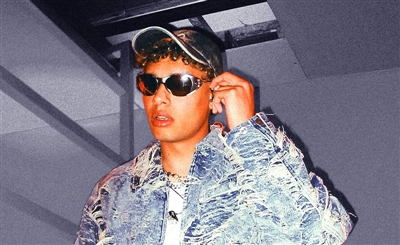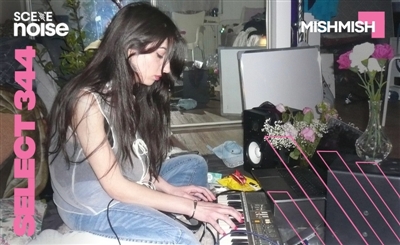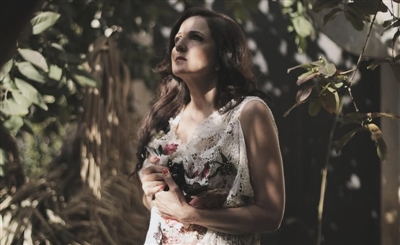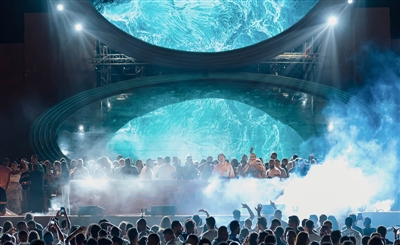Tamer Abu Ghazaleh: Arab World's Alternative Music Tycoon
Kamila Metwaly gets up close and personal with Egyptian-born Palestinian musician and pioneer of the regional alternative industry, Tamer Abu Ghazaleh, to talk humble beginnings and his booming business, Eka3.
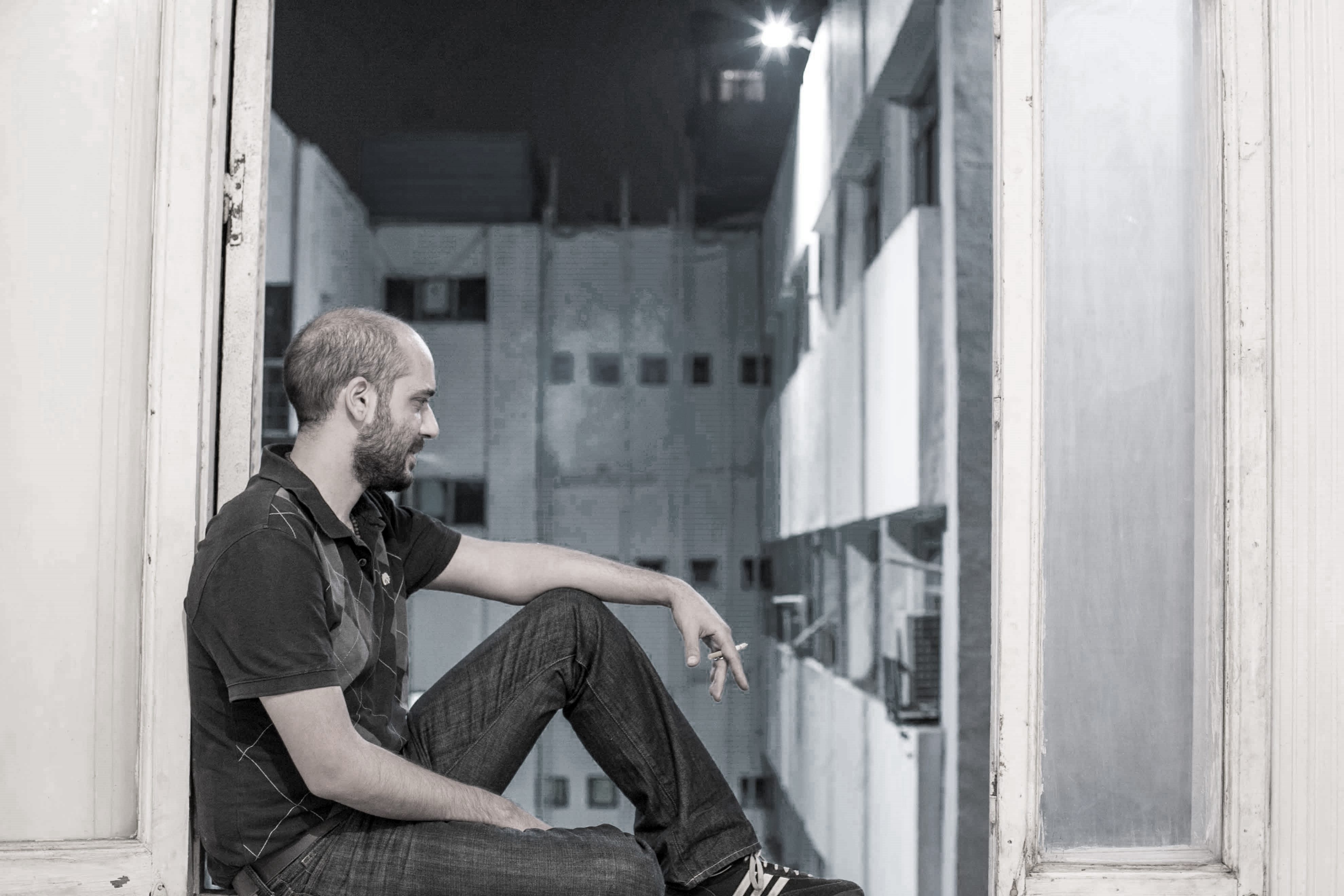
A Palestinian born in Egypt, Tamer Abu Ghazaleh, is one of the Arab region’s most significant players in the alternative music scene and market. Abu Ghazaleh was born in a house full of music, his mother being a founder of a Palestinian choir back in the 90s. Music had become a given rather than an intentional choice. Since the age of five, Abu Ghazaleh was highly involved in music and music making, picking up almost any instrument to play on, as he found instruments “amusing things that one has to explore.” Today, Abu Ghazaleh has a very evident music aesthetic; his recent works have been shaping into works of political satire in a form storytelling and highly thought of music that ranges from progressive smashing drum beats and anticipative vocal lines, to melodies affected by Arab music pioneers. At a certain point of his music making, Abu Ghazaleh decided to become a developer of the regional scene itself, which was barely existent back in 2007. This notion came as a result of an urge of a hungry artist, needing to release his work in an official way.. Consequently, with little funds and few capabilities, Abu Ghazaleh decided to self-serve himself by creating today’s most successful business model which serves musicians in the Arab region, Eka3.
When did you know that you would become musician for life?
I think since I started learning how to play the Oud; I was nine-years old and I knew that there would be no backing off. I’d sit everyday and try to scribe something out of the instrument and my voice. I played music for long hours and, as a result, at the age of 15, I released my first album that no one has probably heard off.
What was on the album?
Mainly songs that I composed between the age of five and 15; it was a collection of the first music pieces I composed. Today, I consider those songs from my childhood. From that time, until around 2008, I worked on music from a very different perspective, which was highly affected by what I learned in Palestine during the time I went to university and studied music.
Who influenced you most at that time?
Khaled Jobran, who thought me at the conservatoire. I think for me this phase was more related to series of experimentations, sounds and the way I learned how to use series of Oriental instruments I knew how to play. It represented different questions that I still raise today. Those questions where more related to nationalism and identity to some extent, all those experiences have also lead to my first official release Mir’ah (Mirror) in 2008.
Six years later, how do you reflect on Mir’ah?
Today when I listen to it, I feel that I was looking for something. That searching has resulted in series of sketches that appear on the album. I feel that the songs that appear on the album are to some extent incomplete and not fully mature. Still, it was a necessary phase that I had to experience to progress in music today. It allowed me to get rid of certain aesthetics that I connected with such as specific directions in melody compositions and relation to words and my approach to writing and working words.
How different is your approach today then?
I am looking more into the relationship between all elements that I use to compose, such as instruments, vocal, words and the general concept of sound. These aspects weren't on my agenda back then; I was more concentrated on specific sounds that the instrument I’d play would produce such as the oud and bozouq. With the release of Mir’ah, I realised that some aspects in my music were missing, and I needed to work on those aspects to understand how an audience would relate to what I do.
In your specific works such as Khabar 3agel and Mahragan Balla3at, it feels like words become a rhythmically structured political satire. A form of your personal commentary layered over the music being played in the background. Was music composition equally important in relation to words and lyrics?
Music has always been the foremost important aspect in all of my compositions. Even when I listen to new songs, the first thing that attracts me in those songs is music, patterns, and melodies. Maybe only when I listen to the song the second or even the third time, I listen to the words. Music, to me, is one of the most important aspects affecting my compositions. I look into instruments, arrangement, and composition then I look at words that would complete that composition. Those two specific songs were also composed during a period in which I was more interested in words to some extent. I had an urge when composing them to express something specific and bold. Those words, however, had to have a solid relationship with the melody, music and sound that I composed too. I tried to create parallel realms, in which words and music would exist, at times those two would attract or retract one another.

In many of your songs you have a very clear flow, which at some points becomes an evident, repetitive sequence, consequently defining Tamer Abu Ghazaleh’s character. You are very funny, rhythmic and playful with words in relation to the beat. Your articulation is heavily defined and clear, and in general you have very different sounding vocals. How have you shaped that character?
I think this approach has grown onto me one I managed to get rid of certain perceptions that have been deeply embedded in me as a musician. Such as, for example, the traditional form of writing words and lyrics. In the beginning, I would first work with text, then I would compose around the text I had. Of course, this approach would direct me to certain places, and pre-define the outcome of the music, vocal melodies and sound of the song. It took me a while to get out of this square. I even stopped writing and working on music for a while for that specific reason. I felt disappointed in what was coming out of me; I felt that everything sounded alike. After that, I decided to start working on the structure of the melody first, and after I would look for words that would complement the existing melody. I started elaborating more on how to play with words, and make them sound differently. I went to new places where I had to revise myself and make sure that words I work with are not deformed and that they actually represent a certain concept when becoming a part of a song.
What are your main influences in music?
No one in specific, however, Khaled Joubran has affected me greatly, not only as my teacher but also and primarily as a musician. I think one of the main things I learned from Joubran is the ability to expose myself to a vast variety of music, understanding where is it coming from and later finding traits that I could be inspired by and personalise in my own music making. As a result, I get addicted to a certain song, or musician, and I do nothing but listen to them on loop.
And now, whom are you addicted to?
I just finished the Michael Jackson phase, I must admit!
I feel that Khabar Agel is highly influenced by Rage Against the Machine, though…
Really? I felt that I was more influenced by Ziad El Rahbani in that song. Maybe with time, and specifically in the songs’ live version, I can agree with you to some extent. In the Hip-Hop part, I actually think that there is some connection there.
The song Dubai is another out of this world work. It sounds largely like you are quoting Chemical Brothers and Prodigy in this song. Tell us more about it.
Honestly, the way the song sounds is pure coincidence. At that time, I didn’t even know Chemical Brothers and Prodigy. I was exploring the world of virtual instruments, and very unintentionally I decided to add a specific beat that appears on the song. Later - I think - I played some heavily improvised lead sounds and the song structured itself by itself.
Before we go into the world of Eka3 and how business is done I would like you to quickly respond to the few words that I will tell you next.
Eka3: A lot of work.
The word Eka3 as in rhythm: It has no other references in my head anymore but work.
Jester: You mean El Sho3ra in Egypt; but I don’t get paid to say anything pro the Kings and my cons are the word sequences I write.
Khayam Allami: He’s beautiful, great energy, hyperactivity, vim, solutions, and positivity.
Mahraganat & Shaabi music movement: Underestimated from an artistic perspective. This is a new genre on a global scale.
Oud: I need to take classes again.
Intifada: It ended.

In 2007 when you launched Eka3, was it a personal decision related to you being a musician or did you feel that you want to serve other musicians in the region?
It was both. On a personal level, I finished the composition and production of the album Mir’ah, and didn’t know what to do with it next. I researched indie and none-commercial record labels abroad, to find a way to release my album. I started discovering the whole indie music market abroad; so I was highly inspired. I thought that it was a great opportunity for me to start it off - I would release my album, and in the same time I would also support the development of the alternative music scene in Egypt and the region. I also knew that I needed to create a whole bundle of services that would serve the label to make sure that a release would be a success one out there. The ideas I had at that time, and as a result of the excessive research I did, music distribution, artists booking, production and artist management would become within the scope of work of the record label. None of those concepts could stand alone, and they would only work best being a part of a whole movement. I also think that I have OCD! So of course I went into the whole hassle of business planning and wanted to make sure that everything is set and would work well for the scene as a business model. I think for me, back then, it was pure logic, I have been trying to implement that logic since though!
And how exactly did you start?
In the beginning I started as a label under the name Eka3. The first six months witnessed the production of four music albums that we intended to be released. We registered Eka3 in Cairo, Beirut and Amman, to work within the region covering various Arab artists and also targeting audiences from those countries. So we kicked off regionally when we started back in 2007. Regionally speaking, the situation in this music scene was very different and limited in comparison to what we are witnessing today. After those six months, we didn’t find a distributor that would be interested in those projects, so we decided to distribute the albums ourselves. A few months later, we realised that we needed to promote those albums, so we had to start organising bookings for our artists and go live with the music we produced, introducing it to new listeners. With some research, I also found out that there are several sources of incomes that a music album could generate. Those include music licensing, so we also added a music-licensing agency to our portfolio in 2008. The last project added to our portfolio is Ma3azef.com in 2012. Ma3azef.com is a music critique digital magazine, which was co-founded by Eka3, Ahmed Zaatari and Maan Abu Taleb. Our brand names have been added gradually. In the beginning we operated under the name Eka3, but lately we realised that it was becoming confusing for people to differentiate between the services we provide under one brand name. So today, we have sub-brands that serve the same movement, under the umbrella of Eka3. AlMoharek is our booking agency, Awyav is our music-licensing agency, Mostakell is our record label, Ma3azef.com is our publication, and Eka3 has become an incubator for music businesses and entrepreneurs who share our vision for independent Arabic music.
Today, who are the artists signed to Mostakell?
Maryam Saleh and myself.
Do you have plans for signing new artists?
Today, the label doesn’t have other artists on its roster because we have been working on amending our strategy in general. In the beginning we used to produce a lot of albums for many artists in a very short period of time. The quantity was needed to create a valid movement in the regional music scene. Today this music scene has become somehow an alternative one. The scene has also grown, due to many existing efforts exerted by various individuals and organisations working in the field so we feel that it’s best to concentrate our label’s efforts on specific artists. We have been restructuring and re-launching our projects; we recently officially launched AlMoharek, and soon we will be also launching Awyav. Afterwards, we will re-launch our record label with series of new productions that we currently working on.
What is the last work you produced?
Maryam Saleh’s album, Mesh Baghanny.
Has the regional music scene has witnessed an evident change in the past few years?
I think that the scene in the whole region has grown evidently in the past seven years. The biggest growth can be noted in Egypt, even from an audience perspective; more people are listening to alternative music. Egypt produces the most amount of music in the region and the audiences are into listening to new artists.
Why do think that is the case?
I think that Egypt has been always the centre of cultural activity in the Arab region. Egypt always produced new concepts in arts and music that countries in the region follow. Egypt is the centre of the production cycle. That is why, the Egyptian audience is also the first on the list to listen, watch and experience. I believe that apart from the alternative scene, post-revolution the media in Egypt has also been concentrating on the exposure of the alternative and underground scene.
Are we an underground scene, alternative scene or indie scene? Those terms have been a reason for many debates lately by musicians and bands in Egypt…
I think such definition or self-categoridation is very subjective, it is a decision each artist should take. Unfortunately, a lot of definitions used in the scene are just words that have specific meanings yet are used in different contexts. The alternative scene should always be the scene that is different from the mainstream music scene. The underground term is a little bit tricky, because it represents the music and people who work within the space of the street, and are not represented by any official venues or media in general. For example, I can relate the terms underground scene to the Egyptian Mahraganat or Shaabi music scene, rather than to what is happening in the remaining parts of the music scene in Egypt. Maybe a few years back, this music scene was underground because there where no venues that would host those acts. Today, I would rather use the term alternative when talking about what is happening in the music scene we are discussing. Finally, an indie (independent) scene is, again, very subjective to each artist. The term really depends on two things; some relate it to the financial independence of the artist, and others relate to the conceptual independence of the artist in what he/she produces.
What is next for the label?
Next will be the release of my album, which will be a compilation of works that I produced since the release of Mir’ah. We will start recording it early 2015. We will also be working on a project that will encompass Maryam Saleh and Maurice Louca, presenting a very new context and sound concept.
Which works, regionally speaking, have inspired you most lately?
A lot! Autostrad (Jordan), Massar Egbari (Egypt), Nagham Masry (Egypt), Tania Saleh (Lebanon), Maurice Louca (Egypt), how many more do you need?
What is still missing in the alternative music scene(s) in Egypt and the region?
Music critique. I think that there should be more music critique out there. Journalists, authors and even individual bloggers have underestimated music critique as a concept and we need more of that. I think the region really needs more critique and opinion-based writing.
Find out more about Eka3 here.
Photography by Mahmoud Asfour.
- Previous Article Getting Abyusif
- Next Article DGTL: Much More than a Music Festival
Trending This Month
-
Jul 07, 2025
-
Jun 18, 2025



